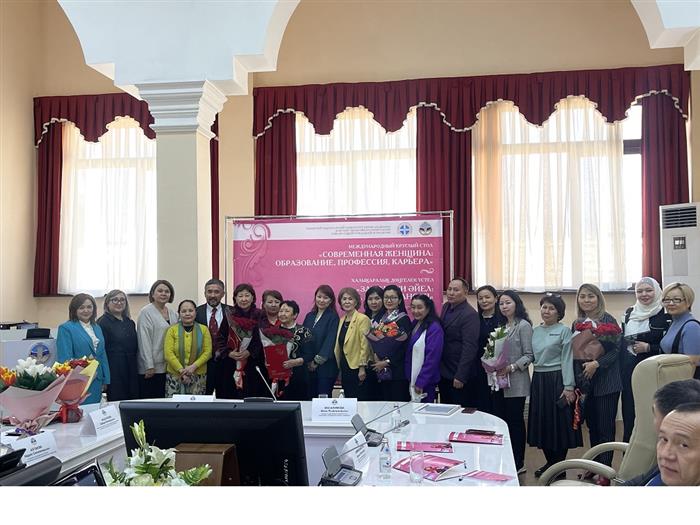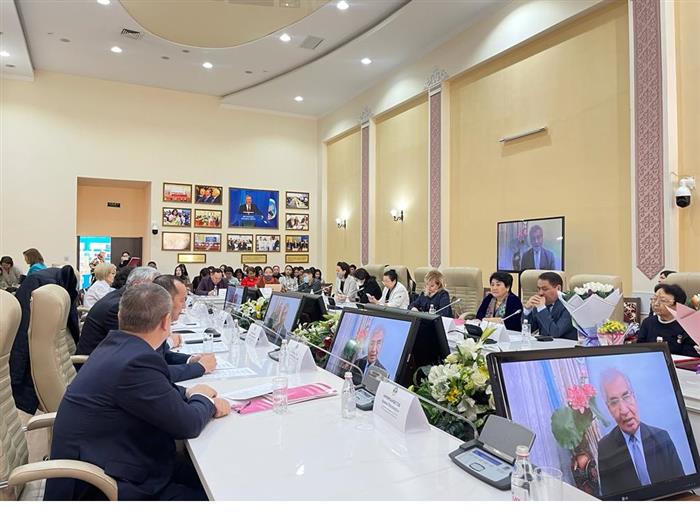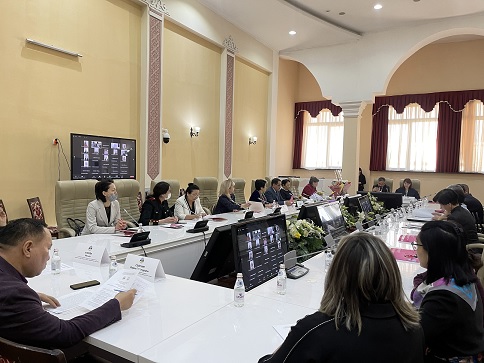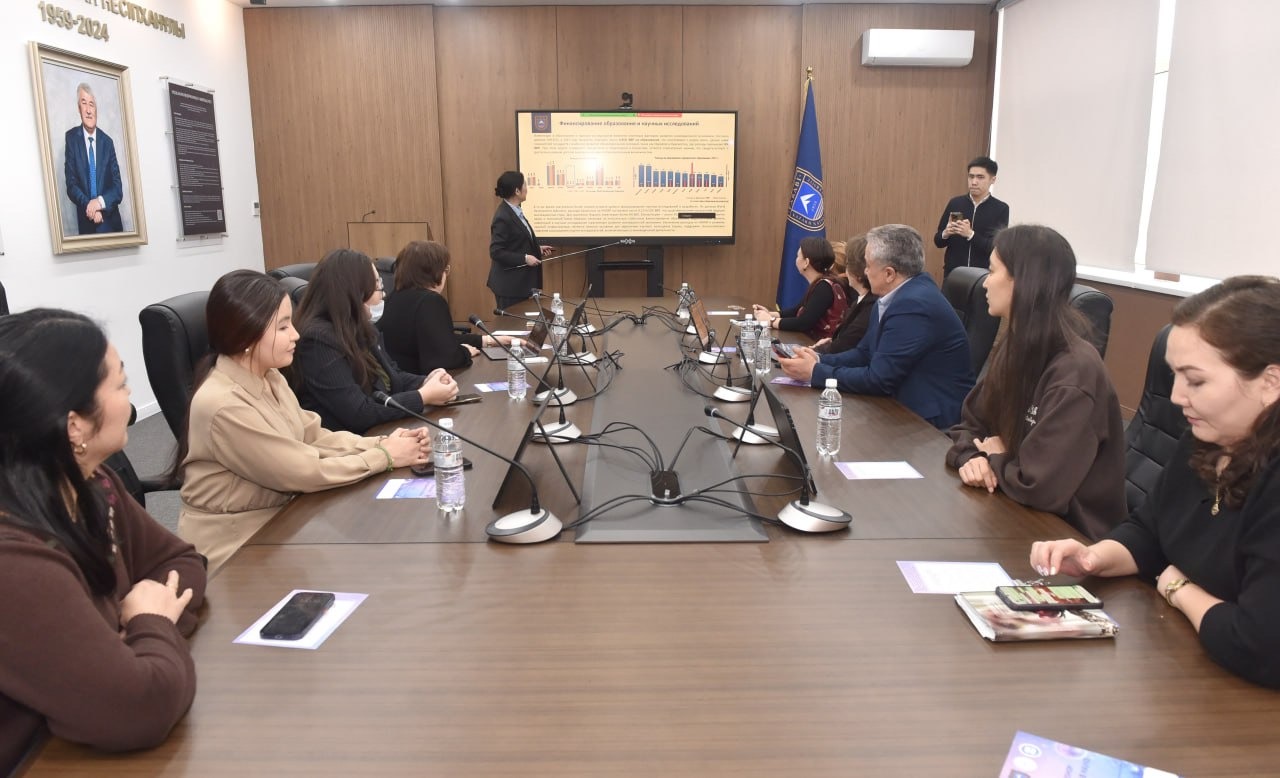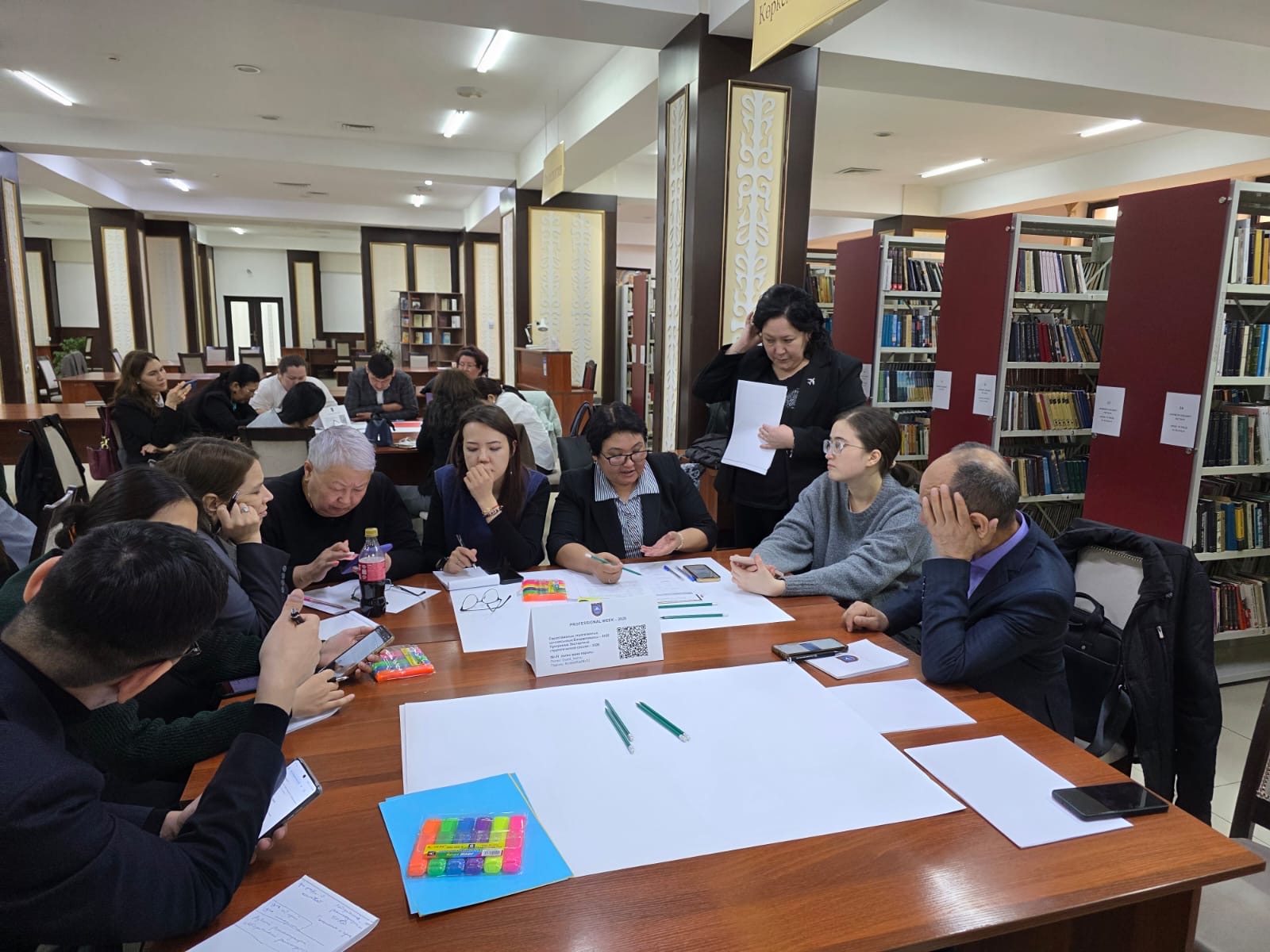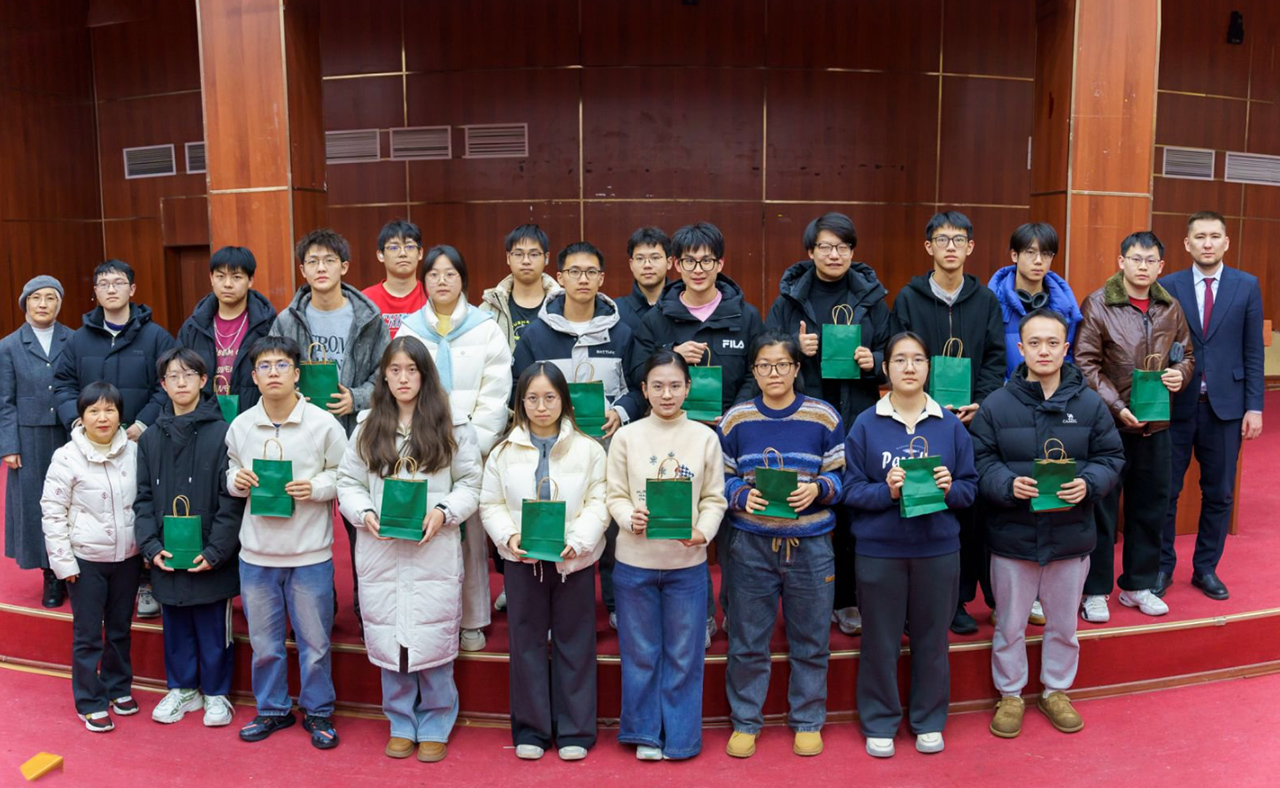Modern woman: education, profession, career
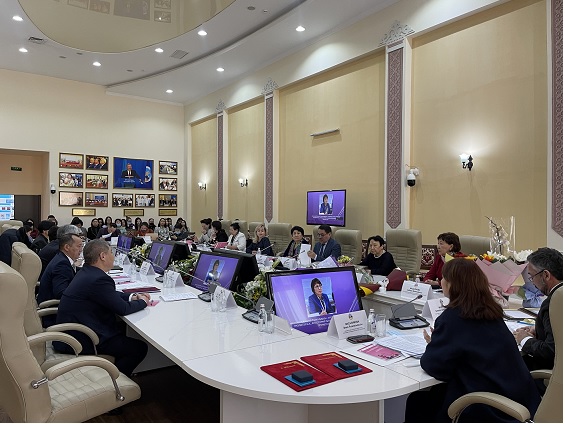
The objective of the round table is to share scientific knowledge among scientists specializing in gender studies in order to promote the full and equal participation of women in education, training, employment and decision-making processes in the scientific field, to encourage them to develop their scientific careers and to recognize their achievements in the profession.
A modern Kazakhstani woman is an active participant and an active subject of many spheres of life and the most significant fields of knowledge: education, health care, science, economics, trade and service.
The round table discussed the following issues:
Wome's face of Kazakhsta's science and education
Problems of wome's representation and career development in the education system
Gender asymmetry and feminization of science and higher education
The problems of wome's self-realization and professional development in the context of the transformation of modern society
Psychology of female career: personal and ethnic mods
"Broken Ladder": gender obstacles at the first stages of a career
According to the Human Development Report for 2019, Kazakhstan ranks 50th among 189 countries, which places Kazakhstan in the category of countries with a very high level of human development. Kazakhstan is also leading in key indicators of gender equality and gender development: the Gender Development Index (GDI) for women is 0.795 compared to 0.790 for men, which indicates a high level of equality between women and men (the aggregate gender development index is 1.006). In addition, over the past few years, Kazakhstan has steadily reduced the value of its Gender Inequality Index from 0.405 in 2000 to 0.197 in 2017, reaching below the average for Europe and Central Asia (0.279).
The gender asymmetry and feminization of preschool, secondary and higher education, i.e. the female person in education, are particularly noticeable. This has its own "pros" and "cons" that need to be explored. But among the obvious "disadvantages" is the lack of male influence and education of young people.
In addition, the world of the family almost completely rests on the shoulders of the Woman - mother, grandmother, wife, aunt, sister. And here there is a shortage and lack of male participation in the formation of the personality of the child and in general the younger generation.
A modern woman in Kazakhstan, along with men, has equal rights and opportunities in obtaining higher education, personal self-realization and building a professional career.
This can be observed especially vividly on the example of modern higher education.
